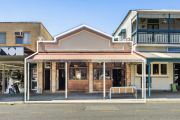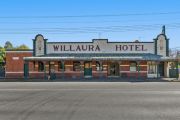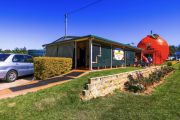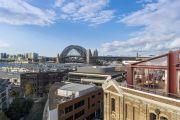
Chinese buyer snaps up former biscuit factory in Melbourne's Abbotsford for more than $37m
A former warehouse in Melbourne’s Abbotsford has sold for $37.28 million to a mainland Chinese buyer, in what some agents say is a sign that ‘offshore money’ is returning to commercial property.
The two blocks at 45 and 50 Grosvenor Street, on a combined 9500 square metres, topped vendor expectations by about $2.3 million.
The site, fronting the Yarra River, comprises an 8145-square-metre building and an open-air car park on 1570 square metres, zoned for industrial use.
The property is on a new 10-year lease to Australia Post, which uses it for parcel and mail handling operations. Software industrial firm Honeywell also has a lease on part of the site until 2021.
The two tenants pay a combined $1.87 million in net rents a year, with the property selling on a 5 per cent yield.
While there is potential for the site to be redeveloped into a mixed-use project, subject to planning approval, the new owner’s long-term intentions are unclear.
The warehouse, originally built and used as a biscuit factory, was being sold by Melbourne-based property developers Lascorp and Herzog Group.
The biscuit factory, run by George Weston Foods, closed in February 2004.
CBRE’s Mark Wizel, who sold the asset with Josh Rutman, Julian White and Lewis Tong, said the sale was a sign of the return of mainland Chinese demand.
“This is in no way a return to the record investment period we had seen prior to 2017, and let it be said we may not see that level of spending again for a long time, but it does signal that offshore money, and particularly Chinese money, is on its way back,” Mr Wizel said.
He added that the fall in the Australian dollar and losses in the stock market had fuelled investment in Melbourne’s commercial real estate, with CBRE closing more than $250 million in commercial property deals in the city since July.
While the security of the lease covenant and tenants were important, Mr Rutman said it was the site’s underlying land value that contributed to the final price.
The deal follows hot on the heels of the sale of a three-storey retail and office building at 27 Market Street, Box Hill, to a Hong Kong developer for $8.8 million under the hammer in early October, on a sharp 3.15 per cent yield.
And another retail and office asset at 2 Small Street, Hampton, sold at auction in the same week for $3.6 million – $200,000 more than the reserve – on a 3.2 per cent yield. The buyer was a Chinese investor from Beijing, who had flown to Melbourne for the purchase.
While Chinese outbound investment into Australian real estate has declined in general due to capital controls imposed by Beijing, investors from the country still splashed $4.6 billion ($US3.3 billion) on Australian commercial real estate in 2017, Juwai.com figures show.
China is the world’s largest international commercial real estate investor, buying $75.7 billion (US$53.8 billion) worth of commercial property globally in 2017, according to the real estate portal.
More than $43 billion worth of Australian commercial property purchase proposals from all foreign countries was approved in the 2016-17 financial year, the Foreign Investment Review Board’s latest report shows.












